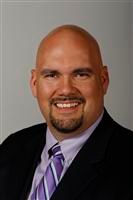Voters will elect a new state representative tomorrow in Iowa House district 21, which covers all of Union and Adams counties, most of Cass County, and some rural areas in Pottawattamie County (see enclosed map). The winner will succeed longtime Iowa House Republican Jack Drake, who passed away in October.
Tom Moore is the GOP candidate here, having won a six-way contest at a special nominating convention easily on the first ballot. I have been unable to find a detailed bio on Moore, but Ian Richardson reported for the Creston News Advertiser that Moore lives in Griswold (Cass County) and is a “retired teacher and former assistant manager for Southwest Iowa Ag in Massena.”
Moore will face Democrat Tim Ennis, a longtime resident of Corning (Adams County) who has held various jobs in the agriculture sector, particularly grain marketing. More background on Ennis is below. He was the 2014 Democratic challenger to Drake.
Although anything can happen in a low-turnout special election, Moore should hold Drake’s seat with little trouble. House district 21 contains more than twice as many registered Republicans as Democrats, according to the latest figures from the Iowa Secretary of State’s office. Mitt Romney outpolled Barack Obama here by 53.64 percent to 45.01 percent in 2012; Joni Ernst crushed Bruce Braley here by a 2:1 margin in the 2014 U.S. Senate race. Also last November, Drake defeated Ennis in the Iowa House race by more than 3,000 votes.
I enclose below a district map and more background on Ennis. UPDATE: Added more information about Moore.
SECOND UPDATE: Moore won the election by 1,409 votes to 853 according to unofficial results. I had to laugh at the comment from Republican State Leadership Committee President Matt Walter: “His victory allows House Republicans to strengthen their majority—proving yet again that Republicans win by running qualified and experienced candidates who connect with voters, even in states twice carried by President Obama.” No, Moore’s victory allows the GOP to maintain the same Iowa House majority (57 to 43 seats), and he won because this is a strongly Republican district.










